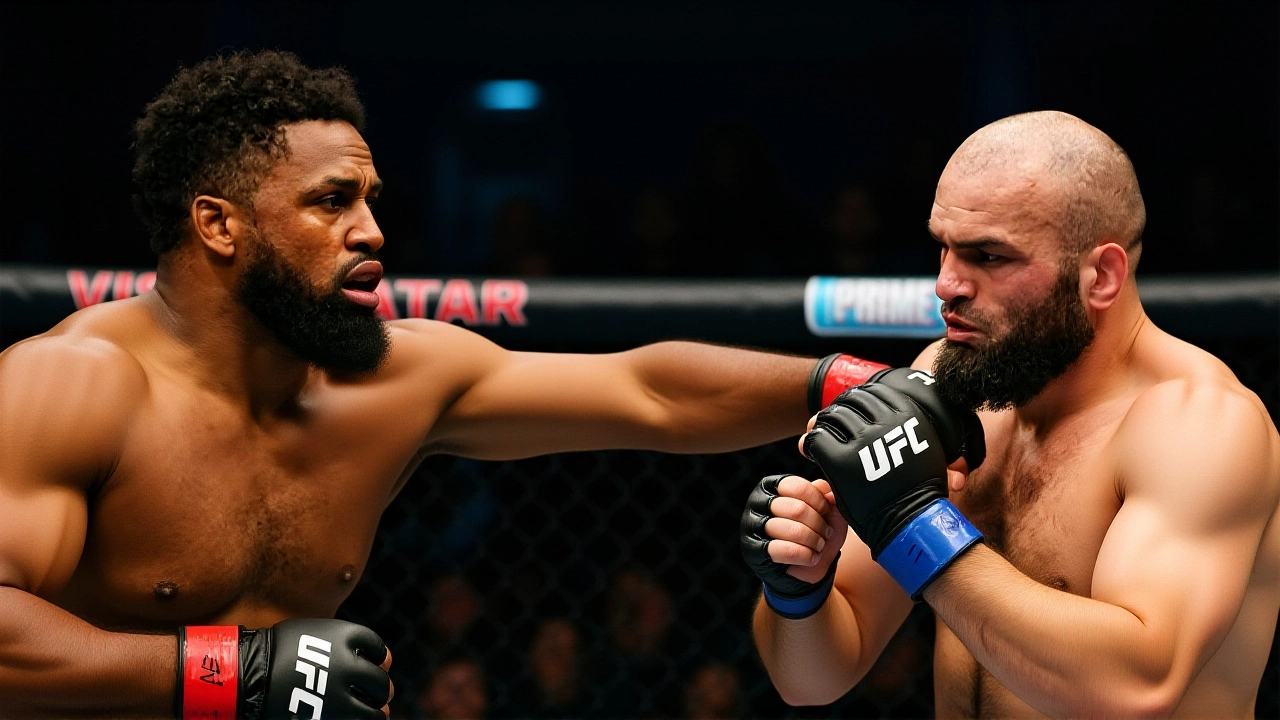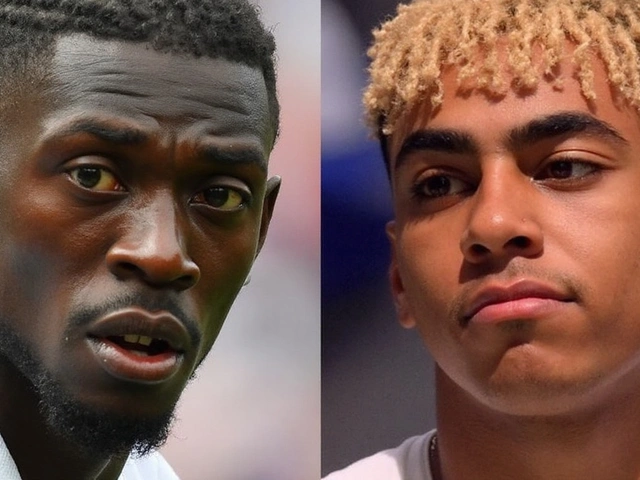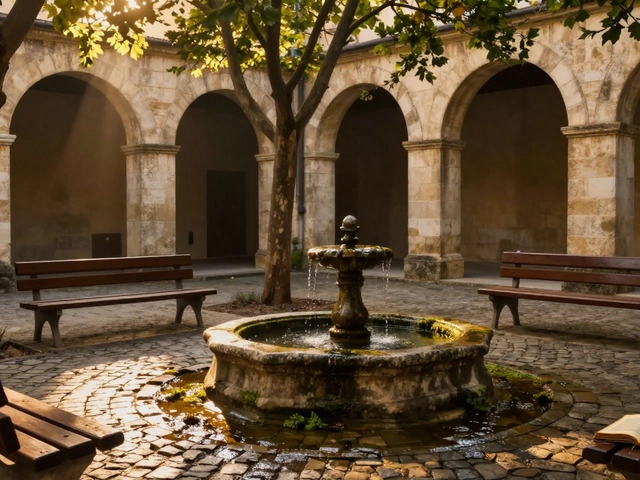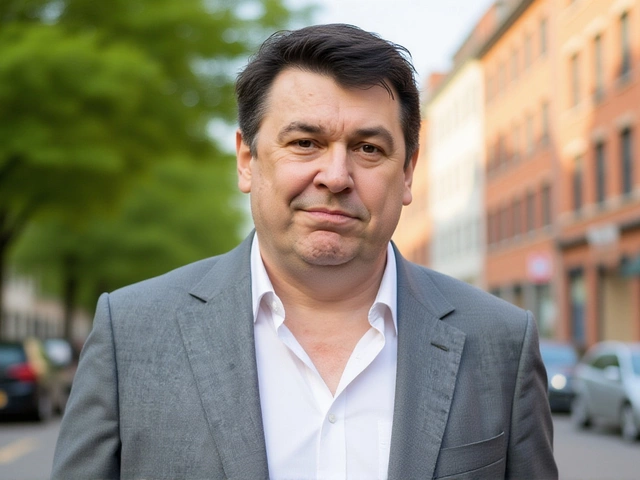When Waldo Cortes-Acosta stepped into the octagon at ABHA Arena in Doha on November 22, 2025, he wasn’t supposed to be there. Just days before the fight, Ukrainian heavyweight Serghei Spivac pulled out — and suddenly, the 30-year-old Dominican fighter nicknamed "Salsa Boy" found himself facing a ranked opponent in Shamil Gaziev. What followed wasn’t just a win. It was a statement. Cortes-Acosta landed a crushing right hand, followed by a thunderous overhand right that sent Gaziev crashing to the canvas. One final punch sealed it at 1:22 of Round 1. The crowd erupted. The UFC’s bonus committee didn’t hesitate: $50,000 for Performance of the Night. And just like that, a last-minute replacement became the night’s biggest story.
Four Bonuses, No Fight of the Night
The UFC handed out four $50,000 Performance of the Night bonuses at this event — the fourth consecutive show to skip Fight of the Night awards entirely. That’s $200,000 in extra payouts, all going to standout finishes. It’s a shift that’s quietly reshaping how fighters approach their bouts. No longer is there a reward for the most entertaining back-and-forth. Now, it’s all about the finish. And the message from UFC President Dana White and his team is clear: win decisively, or don’t bother.
The Other Bonus Winners
While Cortes-Acosta stole headlines with his short-notice explosion, the other three bonus recipients delivered just as compelling performances.
Arman Tsarukyan, the Armenian lightweight, returned after a 19-month layoff to submit New Zealand’s Dan Hooker with a slick rear-naked choke in Round 2. Hooker, known for his durability, had never been submitted in the UFC before. Tsarukyan didn’t just win — he reminded everyone he’s still a top-tier contender.
Then came Kyoji Horiguchi. At 35, the Japanese veteran had been absent from the UFC since 2016 — a nine-year exile after holding simultaneous bantamweight titles in both RIZIN Fighting Federation and Bellator MMA. He returned not just to compete, but to dominate. Horiguchi choked out Uzbekistan’s Tagir Ulanbekov with a triangle choke at 2:15 of Round 3, capping a masterclass in control. It wasn’t just a win. It was a homecoming.
And then there was Luke Riley, the newcomer from the UK. In his UFC debut, Riley knocked out Romania’s Bogdan Grad in the second round with a flurry of punches. No fanfare. No track record. Just pure, unfiltered power. He didn’t just earn a bonus — he earned a future.
The Main Event: Garry vs. Muhammad
While the bonuses stole the spotlight, the co-headliner between Ian Machado Garry and Belal Muhammad was a technical chess match. Garry, the 27-year-old Jamaican-Canadian prospect, landed leg kicks that visibly dropped Muhammad in Round 2. But Muhammad, the former interim champ from Chicago, refused to fold. He defended takedowns, stayed patient, and outworked Garry in the clinch. The judges gave it to Garry by unanimous decision — a solid win, but not the kind that screams "title shot." Still, it’s another step on his climb. And in a division where the top five are all locked in a three-way tie for dominance, every win matters.
Why This Matters
The UFC’s bonus structure isn’t just about money — it’s about signaling. By awarding four Performance bonuses instead of Fight of the Night, the organization is pushing fighters to prioritize finishes over drama. It’s a strategy that rewards aggression, precision, and timing. For fighters like Cortes-Acosta, who stepped in with barely a week’s notice, it’s life-changing cash. For veterans like Horiguchi, it’s validation. For newcomers like Riley, it’s a launchpad.
And here’s the twist: Cortes-Acosta didn’t just take the money. He demanded more. After the fight, he turned to the cameras and said, "I want a spot on the final UFC event of 2025." That’s not just confidence. That’s ambition. And in a sport where opportunities are earned, not given, that kind of voice gets heard.
What’s Next?
With the UFC’s ESPN deal ending soon, the bonus structure may be a preview of what’s to come — more finishes, fewer draws, higher stakes. Cortes-Acosta’s win has already put him on the radar for a potential matchup with top-10 heavyweights like Jairzinho Rozenstruik or Serghei Spivac (who’s expected to return in early 2026). Horiguchi, meanwhile, is being whispered about as a potential flyweight title contender. And Riley? He’s already being scouted for a Fight Night headliner in 2026.
One thing’s certain: in Doha, on a Saturday night in November, four fighters didn’t just win — they rewrote their futures.
Frequently Asked Questions
How did Waldo Cortes-Acosta land a $50,000 bonus on short notice?
Cortes-Acosta replaced Serghei Spivac just days before the event and knocked out ranked opponent Shamil Gaziev in just 82 seconds with a devastating overhand right. The UFC awards bonuses based on impact and finish quality, not preparation time — and his explosive finish was the most memorable moment of the night, earning him the top bonus despite being a late replacement.
Why is the UFC giving out four Performance bonuses instead of Fight of the Night?
The UFC has awarded four Performance of the Night bonuses for four straight events, signaling a strategic shift away from rewarding competitive fights toward prioritizing finishes. This aligns with their goal to promote excitement and highlight knockout/submission specialists, especially as their ESPN broadcast deal nears its end and they prepare for a new media partnership.
What’s the significance of Kyoji Horiguchi’s return to the UFC?
Horiguchi is the only fighter in MMA history to hold simultaneous bantamweight titles in both RIZIN and Bellator, and his 2025 return after a nine-year absence marks his first UFC fight since 2016. His submission win over Tagir Ulanbekov isn’t just a comeback — it’s a statement that he’s still elite, potentially positioning him as a dark-horse contender in the UFC’s flyweight division.
How does this event affect UFC’s future in the Middle East?
Doha’s ABHA Arena hosted a sold-out crowd and strong international viewership, reinforcing the UFC’s push into the Middle East. With Qatar investing heavily in sports tourism and the UFC’s growing fanbase in the region, this event signals the beginning of a potential long-term partnership — possibly including a regular Middle Eastern event slot in future calendars.
What’s next for Luke Riley after his UFC debut?
Riley’s knockout win in his UFC debut immediately placed him in the spotlight as a rising heavyweight prospect. With his power and composure, he’s likely to be booked in a high-profile Fight Night main event in early 2026. Analysts are already linking him to potential matchups against other undefeated newcomers like Tafon Nchukwi or Sergei Pavlovich as the UFC looks to build new stars.
Did the UFC pay any other bonuses besides the $50,000 Performance awards?
No — the UFC did not award any Fight of the Night, Submission of the Night, or Knockout of the Night bonuses at this event. All $200,000 in extra payouts went to the four Performance of the Night winners. This marks the first time since 2022 that no Fight of the Night bonus was given, highlighting a deliberate organizational shift in how they incentivize fighters.

 What crimes do home cooks commit in the kitchen?
What crimes do home cooks commit in the kitchen?
 Do you recommend eating a roasted Costco chicken?
Do you recommend eating a roasted Costco chicken?
 Ballon d'Or 2025: Dembélé Beats Yamal in Historic PSG Triumph
Ballon d'Or 2025: Dembélé Beats Yamal in Historic PSG Triumph
 Taste Your Instant Silence: What Really Happens in Montpellier’s Quiet Escapes
Taste Your Instant Silence: What Really Happens in Montpellier’s Quiet Escapes
 Father Ted Creator Graham Linehan Guilty of Damaging Trans Activist’s Phone, Cleared of Harassment
Father Ted Creator Graham Linehan Guilty of Damaging Trans Activist’s Phone, Cleared of Harassment